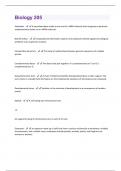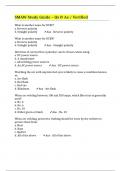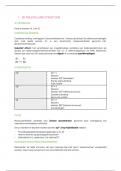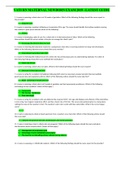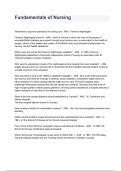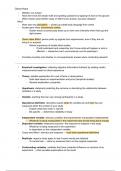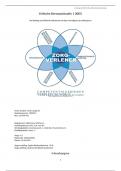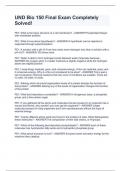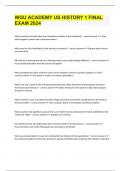Exam (elaborations)
Biology 205 Questions And Answers.
- Course
- Institution
Anticodon - A specialized base triplet at one end of a tRNA molecule that recognizes a particular complementary codon on an mRNA molecule. Bioinformatics - Computational information systems and analytical methods applied to biological problems such as genomic analysis. Comparative Genomics - Th...
[Show more]
